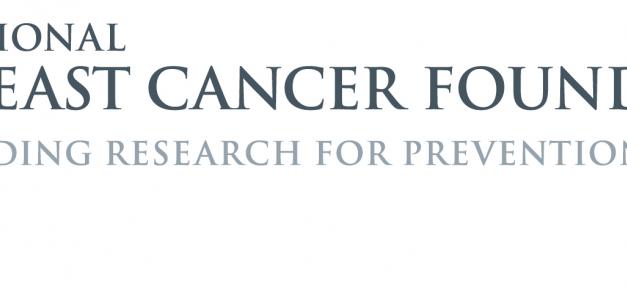The National Breast Cancer Foundation (NBCF) would like to say a huge thanks to the dedicated support from the SDA over the past 18 years in hosting fundraising events at Branches across the country and raising a whopping $331,362 for life-changing research into better diagnosis, treatment and prevention of breast cancer.
At a ceremony held on 18 November, the NBCF acknowledged this support by awarding the SDA with the Commitment to the Cause Award.
This Award recognises organisations which actively promote and raise awareness of breast cancer research within the workplace.
A Wide Range of Fundraising Efforts
Support from the SDA National Office has ramped up in the past few years, with each Branch playing their own part around the country – from purchasing pink ribbon pins, to hosting golf days, bake sales and trivia nights.
Since 1998, fundraising has been steadily increasing, along with participation at events and has resulted in the Branches collectively raising a record $40,637 in 2012, just edging out last year’s impressive effort of $37,134.
It’s committed fundraising like this that makes a real difference in seeking answers about breast cancer.
Reliant on Everyone’s Help
NBCF relies 100% on community support to raise funds that support the very best breast cancer research, and since 1994 has awarded more than $127 million to over 430 research projects across every State and Territory, thanks to the ongoing generosity of Australians.
This has enabled NBCF to fund researchers who have helped develop better therapies, provided greater understanding of possible ways to stop the spread of breast cancer to other areas of the body, and improved the quality of life for patients and their families.
However, breast cancer is a complex disease and there is more to do, particularly in the area of effective treatments.
Continuing the Work
Breast surgery remains the primary treatment for many breast cancers and it’s vitally important to accurately remove the entire tumour while trying not to remove normal tissue, so as to preserve the appearance of the breast.
Current tools are quite limited in their ability to detect microscopic bits of tumour during surgery and more than a quarter of cases need further surgery to get the small traces of tumour that were missed.
This is traumatic for patients and places a significant economic burden on healthcare systems.
To reduce the unacceptably high number of additional surgeries, NBCF is funding research into new operating table techniques.
Tumour tissue is usually stiffer than surrounding healthy tissue, so in this project, Dr Brendan Kennedy from the University of Western Australia is developing ‘micro-palpation’ technology that will provide microscopic images showing how hard or soft the tissue is during surgery.
The aim is to dramatically improve the accuracy of breast surgery, reduce the risk of cancer growing again and ensure better outcomes for patients.
The impact of supporting research like this is clear to see; over the past 20 years the five-year survival rate for women with breast cancer has increased from 76% to more than 89% - a very good result that NBCF believes is thanks in large part to advances and breakthroughs in the lab.
The researchers funded by NBCF are passionate about finding the answers that will lead to a time when there will be zero deaths from breast cancer, and they are able to make a life-changing difference thanks to the support and dedication of fundraisers around Australia.


